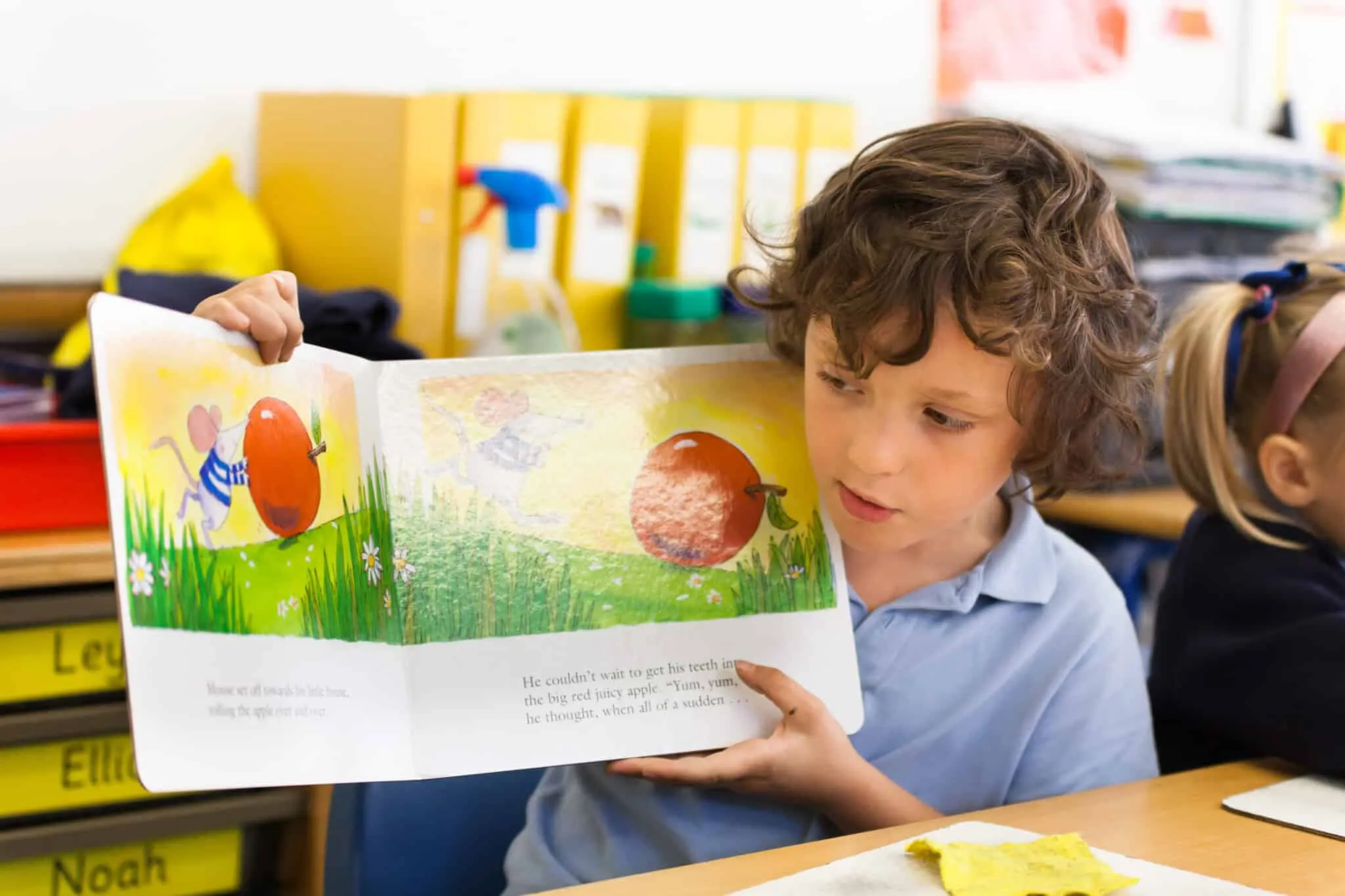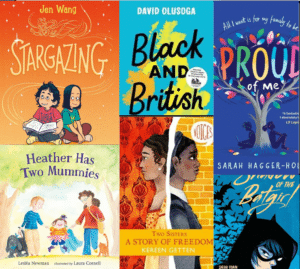January 11, 2022

Last year, we were honoured to celebrate 35 years of Accelerated Reader. As we reflect on its impact on students across the globe, we recognise the importance of not only honouring the past but also looking towards the future. In this blog, we’ll address some of the most common questions about how books are selected for new Accelerated Reader quizzes. We’ll also dive into AR specific initiatives, that have been created to ensure that we are continuously providing every student with a diverse range of options to support independent reading practice.
A massive thank you to our content team members for their dedication to ensuring that AR is inclusive for all students and also for their contributions to this blog; Cecelia Powell (Managing Editor), Laura Claridge (Senior Editor), Sarah Kerr(Senior Editor), Kerry McGuire(Editor), Krista Culbertson(Editor), Peter Smith(Assistant Editor), Elizabeth Griffiths(Content Developer), Lee Burkwood(Senior Content Assistant).
Selecting books for Accelerated Reader quizzes
The students who will be taking the AR quizzes lie at the core of title selection. We want to make sure that we are choosing books that meet the needs of students and schools across the country, from primary through to secondary school.
Of course, popularity with students will always be a motivating factor. For instance, when a new book is published in a popular series—such as Diary of a Wimpy Kid or Harry Potter —there will most likely be an immediate demand for the AR quiz. Moreover, we receive thousands of online requests each year from our end-users: teachers, librarians, parents, and even from students themselves.
Another focus when choosing titles is Diversity, Equity, and Inclusion. Selecting books that portray characters of differing cultures, races, ethnicities, sexual orientations, gender identities, abilities, and religions is vital. To that end, we seek out books with diverse characters and settings. We want to ensure that students are able to choose books that reflect their lives and experiences—and help them to better understand other people’s lives and experiences, too.
Seeking out specific titles with diverse characters and settings
In some ways, the processes for general book selection also apply to our Diversity, Equity, and Inclusion initiatives. For example, we read reviews of new children’s and young adult (YA) books; we form relationships with publishers so that we receive advance notice of upcoming releases; and we review the many suggestions we receive from educators, families, and students, as mentioned above.
A major source of these titles are awards lists that focus on Diversity, Equity, and Inclusion. Currently, our library contains the entire longlist from the Diverse Book Awards, highlighting the best of the diverse voices published in the UK and addressing topics from autism, exploring queer relationships, and Black British History. We are also quizzing titles from the Jhalak Prize.
Another award is the Little Rebels Award which celebrates radical fiction aimed at young children. Recently added, this year’s winning title Boy, Everywhere by A.M. DASSU boasts a politically engaging narrative written to describe a child’s experience as a refugee, migrating from Syria and adjusting to western culture. All titles can be found on the Advanced Search option on AR Bookfind.co.uk under the ‘Award Winners/Nominees’ Topic.
Working directly with publishers as part of the Diversity, Equity, and Inclusion initiative
Each member of the content team has their own list of publishers they have relationships with. An important way of expanding our collection is by seeking books from publishers who specialise in multicultural content and voices. As well as maintaining links with established publishers, we have sought out and forged contacts with exciting indie publishers like Knights of, Hashtag Press, Nobrow, UCLAN and Peirene Press.
There is a certain criteria books must meet before a quiz is written
There is often the notion that Content team members select books based solely on popularity but there is so much more to the process. Our criteria are much less subjective.
First and foremost, a book must be quizzable meaning that it has enough unique content for an AR quiz to accurately assess students’ reading comprehension (or their listening comprehension, in the case of books that are read aloud to them). Not every book meets this criterion. For example, think of a picture book that is designed to teach colours to young children: the coat is yellow, the hat is red, the umbrella is blue, etc. A book like this with little plot offers only straight memory questions, which are not suitable to a comprehension assessment tool. What colour was the coat? Which object was red? —would not be fair to students. Such questions would not assess children’s comprehension but rather their ability to remember the author’s arbitrary decisions about which colour to assign to which object.
Reference books provide another example—including books that are otherwise promising from the perspective of Diversity, Equity, and Inclusion. For example, imagine books aimed at 11–12-year-olds titled 40 Famous Asian Inventors or 50 Pioneering Women in STEM, where each person receives a one-page write-up. Because the individual entries are so brief and high-level, it would be difficult to identify enough unique information to assess a student’s comprehension of the entire text.
The second criterion is that factual information must be accurate. Clearly this criterion applies to nonfiction (which is presented as factual) much more than to fiction (which is presented as the work of the author’s imagination). Like the quizzability criterion, it also applies to all topics, from astronomy to dinosaurs to music. But when nonfiction books focus on historically underrepresented people and groups, accuracy is critical. There have been instances where titles are initially selected for AR quizzes but are then rejected when the Content team reads the book and identifies significant inaccuracies.
New initiatives mean reviewing existing AR quizzes through the lens of Diversity, Equity, and Inclusion
In the UK, Accelerated Reader offers quizzes on almost 40,000 titles, and approaching 2,000 thousand new quizzes are added each year. In addition to writing these new quizzes, our Content team regularly review and refresh existing quizzes within the collection.
In 2020, AR Content Appropriate Guidelines were developed, which require “treating individuals and topic areas with appropriate respect and not offending or otherwise impeding a student’s ability to respond to content due to personal characteristics, background, or other aspects that are not relevant to the content.” The guidelines also require quizzes to treat potentially controversial topics “with sensitivity and in a manner that is respectful to the reader.”
An important part of the current review process is confirming that all quiz question and answer choices adhere to these guidelines. The Content team’s goal is to spend approximately 10 percent of their time on quiz maintenance, reviewing and updating older quizzes in terms of content appropriateness.
Below are a few examples of why a quiz question or answer might need to be revised to better align with the guidelines:
- Treating controversial topics with sensitivity: It is not unusual for a mystery or crime novel to involve a murder or other violent act. But rather than asking students how the murder was committed—and then listing various gruesome alternatives—we would instead ask why the murder was committed (which is also likely more relevant to the novel’s plot than the “how”).
- Using respectful, people-first language: Rather than using a condescending phrase such as “confined to a wheelchair,” we would instead say that a character “uses a wheelchair.”
- Avoiding negative stereotypes: Imagine a book in which a male character apologises to a female classmate. If we asked why he apologised, we would need to provide a list of plausible options for students to choose from: For telling a lie, reading messages on her phone, losing the book she had loaned to him, etc. These are the distractors—answers that are incorrect but appear plausible to students who have not read the book. Here, we would avoid using distractors that perpetuate negative stereotypes—such as saying that girls are no good at football.
Find out more about what our content team get up to behind the scenes in this blog.
Watch content team members discuss the quizzing process for AR.

